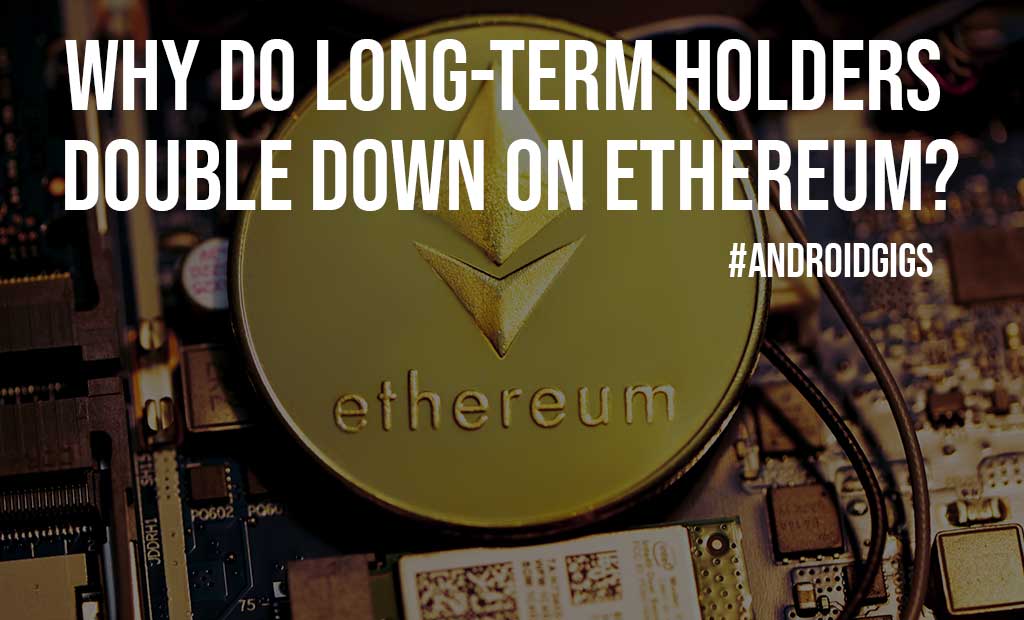Ethereum is the second most appreciated cryptocurrency after Bitcoin, and it’s much more than just another altcoin for many investors and crypto enthusiasts alike. Estimations hint that ETH could grow in value by 400% in 2022, making it a number one choice for investment.
ETH has grown massively in value since its creation. Rolled out in 2015 by renewed computer programmer Vitalik Buterin, Ethereum still represents a comfortable source of investment due to its relative ease and diversification benefits.
Though the altcoin has plummeted below $1,900 this week, it can still provide a lifetime return on investment (ROI) of over 700,000% at the time of writing. A key differentiator between ETH and BTC is that, unlike BTC and other famed digital currencies, Ethereum focuses on more practical services.

The ETH blockchain network has many uses and applications across the tech world, especially for gaming, entertainment, music, and (decentralized finance) DeFi – making it one of the most appreciated and massively-used digital currencies this past year.
Ethereum’s Other Advantages
According to market experts, there are three main advantages to opting for Ethereum:
Liquidity:
One of the main advantages of investing in ETH is that it’s one of the most liquid digital currencies, which means you can easily and quickly exchange it.
Volatility:
Ethereum’s volatility in the marketplace could actually be a good sign since traders can quickly identify patterns and profits from the volatility.
Lower inflation risk:
Inflation is a top-of-mind concern right now, and ETH has a built-in strategy for this that isn’t as vulnerable to tampering, lowering the risk of the value of your coin decreasing.
Ethereum as a long-term investment
The crypto market has not been immune to the changes that have occurred over the past few months. In fact, many of the top leading crypto by market cap are down considerably since late last year.
We’ve seen the ETH price moving past $4,800 in mid-November. By January, it plummeted to about $2,2000 – a drop of about 55%. Since then, it slowly mounted back to about $ 3,000 per token, as of March 22.
A few different factors have caused its volatility, including a growing concern mirrored by the effects of rising inflation, Russia’s invasion of Ukraine, and Covid-19 variants on the economy.
But why’s there a lot happening right now, from the uncertainty of the surrounding world events to potential new regulations, investors who are already familiar with the volatility of the markets should be cautious, do their research, have a long-term view, and avoid investing more they can financially afford. Alas, here is why you should consider ETH as a long-term investment:
ETH offers broader exposure to the market
Eth was developed for much more than being an alternative to digital cash. In fact, the Ethereum network can offer developers a more practical environment where they can easily deploy decentralized apps.
Solidity, which is the core language utilized to build smart contracts, can help developers create more complex applications. Selling, buying, and holding Ethereum is not the only use case for Ethereum. The flexibility of this network allows for hosting not just ETH but also hundreds of other digital currencies through its token system.
Most DApps and digital currencies are hosted or built on the Ethereum platform, which offers investors a broader exposure to the overall crypto market and internet assets like NTFs. The ETH blockchains allow anyone to securely tokenize digital art, collectibles, and even real estate.
ETH can offset the inflationary pressure of the new coins
As the native cryptocurrency of the blockchain, ETH can see the difference between the number of tokens issued. The last few weeks have prompted investors to proclaim that Ether is deflationary because it doesn’t have an explicit limit on supply.
The altcoin is apparently benefiting from the process of burning – a process where cryptocurrencies are taken out of circulation. To put it simply, ETH can process more transactions at much lower and more affordable fees.
Institutions are bullish on Ethereum
Not long ago, we saw many state institutions and businesses dismissing crypto as worthless digital assets employed by drug dealers and other criminals. However, today, digital currencies bear the trademark of institutional acceptance.
Increasingly more businesses are beginning to see ETH as a viable store of value. Recently, crypto strengthened its image as an institutional asset class. Financial institutions, banks, investment firms, fintech, and wealth managers are massively taking positions in Ethereum due to its significant returns. This factors in if you plan on holding Ethereum as a long-term investment.
For instance, earlier this year, the Chinese app maker Meitu purchased $22,1 million worth of ETH. The company was one of the many institutions to purchase Ethereum in large amounts. They also believe that the technology that currently backs the ETH network will likely disrupt existing financial institutions.
ETH will transit to a better system
Because the number of users on the Ethereum blockchain is growing considerably, posing significant scalability issues for the currency, the network is preparing to transit to a newer and much faster version.
The ETH 2.0 will be much faster, more secure, and more efficient. However, the main addition of the upgrade will be a migration from proof-of-work ( PoW) to a proof-of-stake (PoS) mechanism that will allow users to take their ETH to become validators on the network. This allows them to create new blocks and order new transactions.
Why should you consider ETH a long-term investment? Eth has the network advantage going for it, which allows users to drive value or utility from a service based on the number of people using the products. The network has a massive ecosystem of Dapps that continues to grow along with a supportive community that encourages the use cases of blockchain.
